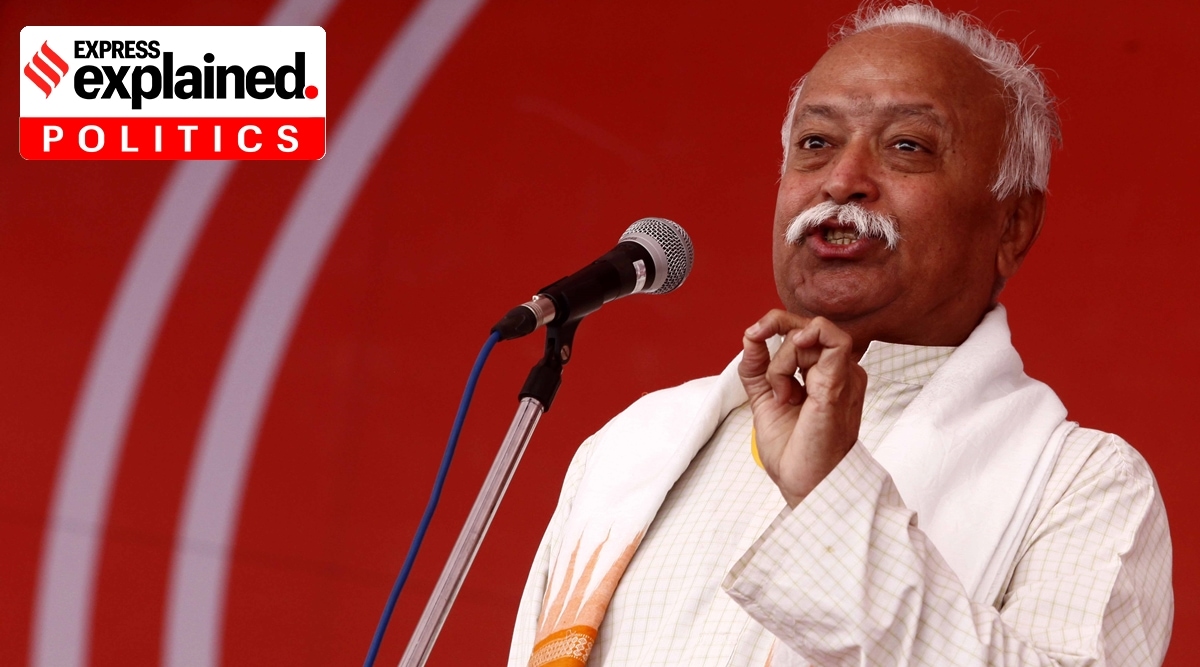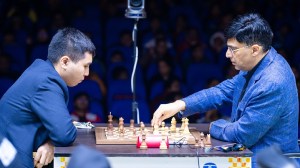Rashtriya Swayamsevak Sangh (RSS) Sarsanghchalak Mohan Bhagwat said on Wednesday (September 6) that reservations should continue for as long as there is discrimination in society. This statement was a departure from Bhagwat’s earlier position articulated eight years ago, when he had called for a review of the system of quotas.

But first, what did Bhagwat say on Wednesday?
According to a PTI report from Nagpur, Bhagwat underlined the RSS’s support for reservations for the historically disadvantaged sections of Indian society.
“We kept our own fellow human beings behind in the social system. We did not care for them, and it continued for 2,000 years,” he said.
“Until we provide them equality, some special remedies have to be there, and reservations is one of them. Hence, reservations have to continue till there is such discrimination. We at the RSS give all support to the reservations provided in the Constitution,” Bhagwat said.
And how was this different from what he had said earlier?
In September 2015, in an interview given to RSS-linked weeklies Panchjanya and Organiser, Bhagwat had called for a review of reservation by a panel of non-partisan observers.
“…Form a committee of people genuinely concerned about the interest of the whole nation and committed to social equality…,” the Sarsanghchalak said. “They should decide which categories require reservation, and for how long. Like autonomous commissions, this non-political committee should be the implementation authority; political authorities should supervise them for honesty and integrity…”
Story continues below this ad
Bhagwat spoke days before the Assembly elections in Bihar, and was widely seen to have damaged the BJP. While Bhagwat seemed to have realised his mistake quickly, it was to little avail.
On October 22, with two phases of polling over and another three phases to come, he praised Babasaheb Ambedkar at the Sarsanghchalak’s traditional Vijayadashami address, which he ended with the slogan “Hindu-Hindu ek rahein, bhed-bhaav ko nahi sahein (All Hindus must unite, must not tolerate discrimination)”.
But the Mahagathbandhan of Nitish Kumar’s JD(U), Lalu Prasad’s RJD, Congress, and some smaller parties nevertheless used his statements to argue that the RSS and BJP were against reservations for SCs, STs, and OBCs. The Mahagathbandhan won a two-thirds majority, and Nitish became Chief Minister.
Was this the first time that the RSS had invoked Dr Ambedkar?
While Bhagwat’s praise for Ambedkar was seen as his way to make amends for the time-to-rethink-reservations remark, it was not the first time that the RSS had invoked Babasaheb.
Story continues below this ad
The RSS has held the flag for Hindu unity from the time of its foundation in 1925, but it has always faced criticism for having a leadership dominated by upper castes, and especially Brahmins. Two incidents in particular were seen as a setback to the RSS’s bid to “unite Hindus”.
On Vijayadashami day in 1956, as Sarsanghchalak M S Golwalkar addressed swayamsevaks at Resham Bagh in Nagpur, at Deekshabhoomi in another part of the city, Ambedkar led almost half a million followers to embrace Buddhism.
Twenty-five years later, in 1981, hundreds of lower-caste Hindus in Meenakshipuram in Tirunelveli district of Tamil Nadu converted to Islam to escape caste oppression.
The Meenakshipuram incident shook the RSS, and it began invoking Ambedkar and Dalits more frequently thereafter. It also started organising a series of Hindu Samagams or gatherings; in one such event held in 1982 in Bangalore, thousands of uniformed swayamsewaks declared, “Hindavah sahodarah sarve (All Hindus are brothers).”
Story continues below this ad
And at a function in Maharashtra on April 14, 1983, the RSS observed the birthdays of both its founder K B Hedgewar and Ambedkar — that year, Ambedkar’s birth anniversary by the Roman calendar coincided with Hedgewar’s by the Hindu calendar. To build on this symbolism, the RSS then took out a 45-day Phule-Ambedkar Yatra that covered the whole of Maharashtra.
In 1989, the centenary year of Hedgewar’s birth, when Balasaheb Deoras was Sarsanghchalak and H V Sheshadri was Sarkaryawah, every RSS shakha was asked to run at least one education centre in Dalit localities in its area. Sewa vibhags were then established in the RSS to organise such activities.
The following year, the RSS observed the centenary year of Ambedkar and the Dalit reformer Jyotiba Phule. The Akhil Bharatiya Pratinidhi Sabha (ABPS), the highest decision-making body of the RSS, passed a resolution saying: “These two great leaders dealt deadly blows to the evil practices and conventions prevailing in Hindu society, and… successfully persuaded Hindu society to do away with all the injustices it had perpetrated on its own members.”
And what about the RSS’s stand on caste-based reservations?
Mohan Bhagwat’s 2015 position echoed the RSS’s point of view over the previous three decades. In 1981, it had passed a resolution calling for a committee of non-political people to review the policy of reservation, and stuck to that stand in the subsequent decades.
Story continues below this ad
Significantly, however, both the Jana Sangh and its successor, the BJP, repeatedly demanded quotas for the economically weaker sections, besides stressing on the need for continued caste-based reservation. The quota for the poor came into force in 2019.
In 1981, as an anti-reservation movement raged in Gujarat, Prime Minister Indira Gandhi said that merit should not be ignored while ensuring justice for deprived sections. That year, the ABPS passed a resolution calling for “the constitution of a committee of non-partisan social thinkers, which will study in depth all the problems arising out of reservations and suggest positive steps for the uplift of Harijans and Tribals…”
Note that Bhagwat’s statement of 2015 was very similar to this original formulation.
The ABPS resolution also wanted the committee of thinkers to “recommend necessary concessions to the other economically backward sections with a view to ensuring their speedy development”, and “agree(d) with the Prime Minister’s viewpoint that reservation cannot be a permanent arrangement, that these crutches will have to be done away with as soon as possible…”
Story continues below this ad
Four years later, in 1985, the RSS’s Akhil Bharatiya Karyakari Mandal (ABKM) “reiterate(d) its earlier demand that the central government should, without further delay, come forward to constitute a representative committee of eminent and impartial persons to examine and evaluate in all its aspects and formulate a national consensus on the reservation policy, so that even while the socially neglected and needy sections of society receive the necessary support…”
The same year, the ABKM “alerted” the government and the people against the “…exploitation of poverty and illiteracy of the backward classes and setting them up against the rest of society with the help of foreign funds… (as) a weapon of vote politics…”
Another resolution adopted at the same ABKM said that the “…policy of reservation, designed and accepted as a means to accelerate the pace of development of our backward and neglected brethren and thus strengthen social harmony, (was) being stretched to ludicrous lengths, having been made a tool for partisan gains…”








































